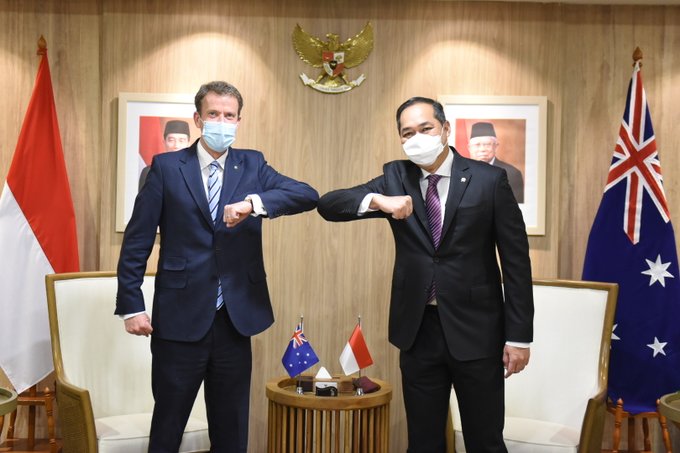Agenda for change: making the most of Australia’s free-trade deals
Posted By Gill Savage on March 7, 2022 @ 11:45

In the lead-up to every federal election, ASPI looks at the big challenges facing Australia and what’s needed to address them. Agenda for change 2022: shaping a different future for our nation [1], released on 2 February, aims to promote public debate and understanding on issues of strategic importance to Australia. The report’s key message is that we need to embrace uncertainty, engage with complexity and break down the silos. Our economic prosperity, national resilience and security depend upon it.
ASPI senior fellow David Uren’s creatively titled chapter in Agenda for change 2022 [1], ‘Free trade partners: where the bloody hell are you?’, highlights the need for Australia to get better value out of its free-trade agreements.
Over the past 10 years, Uren says, Australia focused its trade attention on China in a ‘one-horse race’, and it’s time the government introduced ‘some competition by working with our broader network of free trade and security partners’.
Uren highlights that our cumulative trade with China over the past decade has risen by 150%, against a ‘paltry’ 23% increase elsewhere. He says the story is similar on the imports side: ‘China’s sales to Australia have rise by 110%’, while the remainder of our purchases have grown by just 14%.
These results sit in stark contrast to the ‘huge expansion in Australia’s network of bilateral and regional preferential trade agreements’ over the past decade.
The share of Australia’s trade with its principal trading partner is high relative to other peer economies, but not exceptionally so. What is unique for Australia is that the government of its largest market has ordered punitive trade action in an effort to force changes in Australian government policy.
During the Covid-19 pandemic, Australia experienced firsthand the uncertainty and fragility created by the fracturing of our supply chains when we found ourselves at the end of the trade queue as our trade partners prioritised their trade arrangements.
Uren reminds us that ‘Economics 101 teaches that the point of an economy is to enhance consumer welfare or to raise living standards. Exports aren’t an end in themselves but are a means to finance imports.’
He also notes: ‘China isn’t buying goods that Australia used to sell from the US because they are lower cost or better value, but because the Chinese government has banned purchases from Australia and the US government has required Chinese purchases from the US. It’s a world of managed trade that can only harm the interests of a mid-sized economy such as Australia.’
Australia’s usual approach to stimulating trade is through trade missions and delegations where relevant ministers and business leaders head off overseas to entice other nations to buy our goods. Uren says the focus should be on our bilateral trade partners and we should be meeting with them here.
He also suggests that Austrade’s mandate should be expanded to include ‘the promotion of Australia as a destination for imports, as well as simply supporting exports’. The establishing legislation for Austrade doesn’t reference imports, so broadening Austrade’s role would require amendments to the relevant legislation.
The significant effort by the Australian government to develop bilateral trade agreements with India and the UK is acknowledged by Uren, but he says more is needed. ‘Australia should be working harder to integrate its security and its economic policy’ and we should be leveraging the Quad and AUKUS partnerships to a greater extent.
Uren suggests that ASEAN trade partners including Thailand, Malaysia and Indonesia provide further opportunity for enhancing and diversifying trade. The catch is that ‘success is likely to hinge on Australia accepting limited inroads for our agricultural exports’.
He notes that the use of a bilateral agreement by the US ‘to seize export markets from a principal ally is an example of what happens when the world’s most powerful nations depart from the rule of trade by the World Trade Organization’ and ‘manage their commerce by the exercise of their power’. In response, Australia’s prime minister needs to lead on ‘concerted trade diplomacy’ with our security partners.
Uren’s conclusion is that Australia must ‘defend governance of global trade according to agreed rules and to underline the damage caused when great nations dictate their own terms of trade’.
Article printed from The Strategist: https://www.aspistrategist.org.au
URL to article: https://www.aspistrategist.org.au/agenda-for-change-making-the-most-of-australias-free-trade-deals/
URLs in this post:
[1] Agenda for change 2022: shaping a different future for our nation: https://www.aspi.org.au/report/agenda-change-2022-shaping-different-future-our-nation
Click here to print.